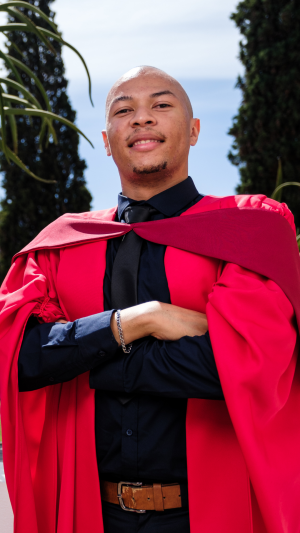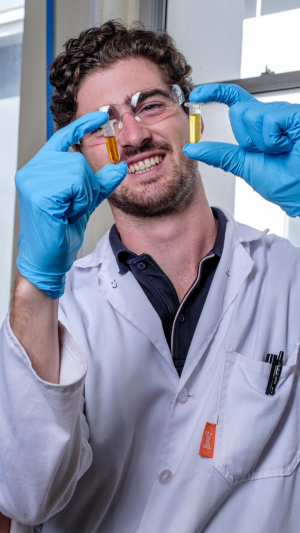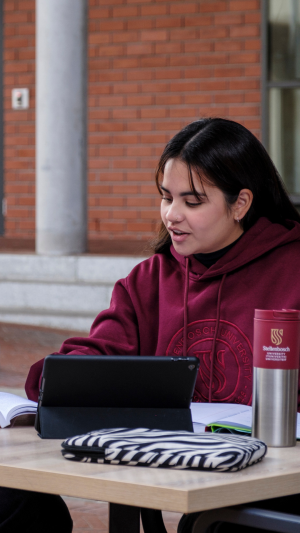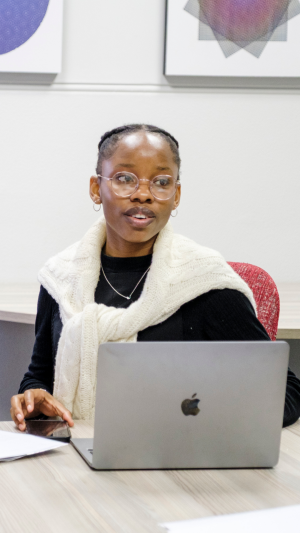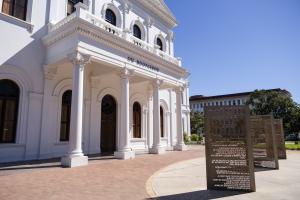
Welcome Postgraduate
The Postgraduate Office (PGO) serves as the central support hub for Stellenbosch University’s postgraduate students and supervisors. The PGO is dedicated to enhancing every stage of the postgraduate journey. By working closely with faculties and support divisions, the PGO fosters an enabling environment that strengthens research quality and enriches the overall postgraduate experience.
Get started
Registration and fees
Find out how to register for your programme, manage your student account and access important information about payments and financial support.
Faculties
Find important information on your faculty's webpage.
Postgraduate Funding Office
Find more information on funding opportunities for postgraduate studies.
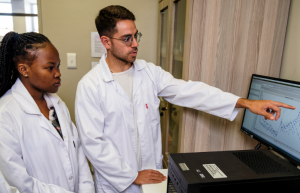
Important links dashboard
Access the MY.Sun dashboard to find a range of important links to support services at the University.

Postgraduate Office Workshops
Accelerate your research journey with our free academic and professionals skills workshops for registered SU postgraduate students.
Information
Contact us
General postgraduate studies support enquiries: [email protected]
General postgraduate skills development enquiries: [email protected]
Information on Joint Degrees
Overview
Stellenbosch University (SU) has agreements with a limited number of partner institutions worldwide for the enrolment of joint degree candidates, mostly at doctoral level.
These agreements are updated as new partnerships are concluded. See below for the current list of partner universities.
Definition of a Joint Degree
A joint degree results from international collaboration between SU and a partner institution on a jointly defined and fully shared study programme.
All partner institutions share responsibility for the entire programme.
The degree is awarded jointly by decision of all partner institutions.
If partners cannot reach a joint decision, no institution may award the degree individually.
Criteria for Concluding a New Joint Degree Agreement
All six requirements must be met in a substantial manner:
Fit within the vision and mission of SU and contribute to SU’s goals.
Provide complementarity that benefits SU.
The foreign university must have expertise in the relevant research area.
SU must also have expertise in the relevant research area.
Reasonable prospects for student mobility between the institutions.
Sustainability and active functioning of the agreement, based on a proven track record of collaboration.
Process for Establishing a New Joint Degree Agreement
Initiation: The supervisor of the prospective PhD student must initiate the request.
Note: One-off agreements for individual candidates are not possible.
Required Documents
Every new joint degree agreement requires:
An institutional Memorandum of Understanding (MoU) with the partner university.
A general framework agreement, usually applicable across faculties.
A candidate agreement, specific to the individual student.
Important Considerations
Negotiating new joint degree agreements takes time and requires substantial alignment of rules, processes, and regulations.
Where a framework agreement exists, concluding a candidate agreement is much simpler.
New agreements are reviewed by the Joint Degree Committee (JDC), which meets ad hoc.
JDC decisions are reported by the Postgraduate Office via the Academic Planning Committee to Senate.
Financial Implications
For Students
Travel expenses
Accommodation and living costs abroad
Visa and insurance costs
For Supervisors
Possible requirement for students to pay partner university fees
Costs of convening a joint examination committee (often larger, requiring physical presence of examiners)
Travel costs for examiners
Existing Joint Degree Partners
This list is updated regularly. Not all agreements are applicable to all candidates.
Coventry University
Erasmus University Rotterdam (EUR)
Friedrich Schiller University of Jena (FSU)
Ghent University
Hasselt University
KU Leuven
Radboud Universiteit Nijmegen
Reutlingen University (Master’s only)
Université de Bordeaux
Université de Montpellier
Universiteit Antwerpen
University of Göttingen (Master’s only)
University of Groningen
University of Hamburg
University of Leipzig (includes Master’s)
Università degli Studi di Padova
Vrije Universiteit Amsterdam (VUA)
Vrije Universiteit Brussel
Université Toulouse III – Paul Sabatier
Université Clermont Auvergne
How to Pursue a Joint Degree with an Existing Partner
Find a supervisor at a partner university willing to co-supervise.
The student must apply and be admitted at both institutions.
A candidate agreement must be signed, covering:
Time allocation at each institution
Financing of enrolment at both institutions
Costs of convening and running the joint examination committee (templates are available per partner institution)
Supervisors and/or students must ensure sufficient funding for participation, travel, and stays abroad.
Contact
For more information: [email protected]
Grievance procedures for postgraduate students
Importance of a student–supervisor Memorandum of Understanding (MoU)
A strong postgraduate student–supervisor relationship is key to your research journey. At Stellenbosch University (SU), signing a Memorandum of Understanding (MoU) with your supervisor(s) is a compulsory process.
The MoU helps set expectations, define boundaries, and ensure open communication from the start. Check with your department if they use a department-specific MoU in addition to the institutional one.
If challenges arise
Despite best efforts, difficulties may occur in the student–supervisor relationship. If you are unable to resolve matters directly with your supervisor(s), the following pathways are available:
1. Academic issues
For concerns such as poor feedback or prolonged supervisor absences:
First, discuss your concern with your supervisor.
If unresolved, escalate to your Head of Department, then the Vice-Dean for Research, or ultimately the Dean of your Faculty.
(Contact details are available in this document.)
2. Authorship disputes
For disputes about authorship or responsible research practices, contact the Office for Research Integrity and Ethics (ORIE) in the Division for Research Development (DRD).
ORIE oversees the Policy for Responsible Research Conduct and investigates reported breaches.
ORIE also supports SU Research Ethics Committees handling work involving humans, animals, and the environment (e.g., biohazards, GMOs, nanomaterials).
Contact:
Clarissa Robertson: [email protected]
3. Administrative issues
For administrative challenges:
Start with your departmental or faculty administrator.
If you need further assistance, contact the Postgraduate Office (PGO):
Location: 3rd Floor, Room 3018, Krotoa Building, Ryneveld Street, Stellenbosch
[email protected]
4. Non-academic issues
For grievances such as harassment or unfair discrimination:
Contact the Equality Unit:



